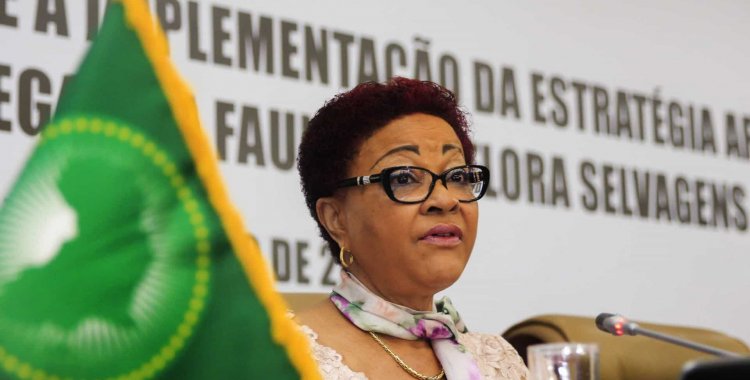"We have great agricultural potential, but even today we still depend on the food we import. It is a great challenge", said Josefa Sacko.
The diplomat and current commissioner of the African Union for Agriculture and Rural Economy, Josefa Leonel Correia Sacko was speaking this Friday in Luanda, during the presentation of her reappointment to a second term for this portfolio, which will also include the Blue Economy and Environment.
"Especially in Sub-Saharan Africa, we have water, we have land, we have the climate, but unfortunately our agriculture has not yet reached the level of food self-sufficiency," she stressed.
She considered that the covid-19 pandemic brought "a great destruction of the agricultural distribution chain" in Africa, making the need for the continent to be self-sufficient more pressing.
"We import between 30 and 40 billion dollars of food per year and the pandemic has told us that we have to organize ourselves in our continent," she said, giving as an example the difficulties of importing rice during this period of the pandemic.
To get around this dependency, Josefa Sacko said she presented the African Union states with a proposal to create food reserves in the five African sub-regions, a program she wants to implement in the next term benefiting the newly created African free trade zone.
The program includes the creation of food reserves of fruit and vegetables in North Africa, rice in West Africa, cassava in Central Africa, maize in East Africa and livestock in Southern Africa.
In the field of environment, Josefa Sacko considered that "the operationalization of the Paris Agreement has failed" and that it is necessary to "accelerate and update" the "requirements for adaptation" to climate change.
"Our priority on the continent must be to adapt to the natural disasters that exist," she said, stressing the importance of reducing the risk of natural disasters.
The approach to the problem of water reduction, particularly in Lake Chad, and the Great Green Wall project are other priorities of the commissioner for the new mandate.
Josefa Sacko said if elected, she would focus her mandate on the recommendations of the Malabo declaration, which stipulates by 2025 to end hunger and poverty in Africa and triple the continent's internal trade, create resilience of the production system and populations to climate change.
Investing in agrarian reform and the right to land, empowering women, attracting young people to agriculture and boosting domestic trade in agricultural products are other priorities identified by the Angolan candidate.
"If I am elected, I will go through more action. In the first term we already laid the foundations, now it's just action, action, action," she said.
Josefa Leonel Correia Sacko, the only Portuguese-speaking representative on the list of 25 pre-qualified candidates for the election of the next African Union (AU) Commission, will seek re-election at the next African Union summit in February.
According to the final list of pre-qualified candidates, to which the Lusa agency had access, the Angolan candidate is the best evaluated among the four candidates in this portfolio, with a score of 81.65 percent.
Sacko's opponents in the race are representatives from the Gambia, Uganda and Morocco.
The new commission, the first to be elected after the AU reform process begun in 2016 under Rwandan President Paul Kagamé, will have fewer commissioners and be elected through a new merit-based system.
The African Union's leadership structure will consist of eight members, including a president, a vice president and six commissioners, two fewer seats than the previous commission.
The organization launched an appeal to the 55 member states, including Lusophone Angola, Cape Verde, Guinea-Bissau, Equatorial Guinea, Mozambique and Sao Tome and Principe, to nominate candidates to fill the disputed seats.
The seats will be distributed equally between men and women.
A panel of experts reviewed a list of 89 candidates, having pre-qualified 25 candidates, who will now have to be elected by the Executive Council of the African Union, composed of the Ministers of Foreign Affairs of the member states of the organization.
For the commission's leadership, Chad's current president and former foreign minister, Moussa Faki Mahamat, is running for re-election without opposition, but he needs to get two-thirds of the countries' votes to remain in office.







